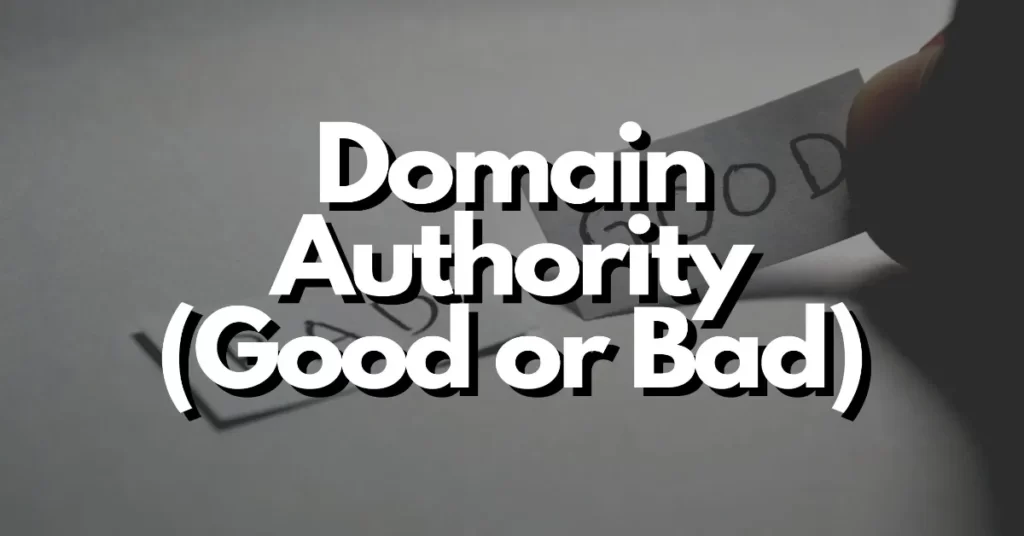Domain authority is a metric that has garnered both praise and criticism within the SEO community. While some experts vouch for its usefulness in evaluating a website’s authority and potential for higher search engine rankings, others argue that it can be an oversimplification of a complex SEO landscape.
In this blog post, we will delve into the pros and cons of domain authority, exploring its benefits as well as limitations. By understanding the nuances and considering different perspectives, you can make an informed judgment about the role of domain authority in your SEO strategies.
The Pros and Cons of Domain Authority: Assessing the Benefits and Limitations
Domain authority comes with its own set of pros and cons. On the positive side, it provides a standardized metric to assess the credibility and authority of a website. It helps gauge the competitiveness of your website within your industry and track your progress over time.
A high domain authority can contribute to higher search engine rankings, increased organic traffic, and improved online visibility. However, domain authority has limitations. It is a relative metric and should be used for comparative analysis rather than an absolute measure of success.
It’s important to understand that domain authority is just one piece of the SEO puzzle and should be considered alongside other important factors for a comprehensive evaluation of your website’s performance.
Understanding the Value of Domain Authority in SEO Strategies
Domain authority holds significant value in SEO strategies. It serves as a guiding metric to assess the effectiveness of your efforts in improving your website’s authority and credibility. By tracking and monitoring your domain authority, you can measure the impact of your SEO strategies and make data-driven decisions to optimize your website.
A higher domain authority opens doors to more opportunities, such as attracting high-quality backlinks, earning guest posting invitations, and collaborating with industry influencers. By understanding the value of domain authority and incorporating it into your SEO strategies, you can enhance your website’s visibility, credibility, and long-term success.
Criticisms and Controversies: Debating the Validity of Domain Authority
Domain authority has faced criticisms and controversies within the SEO community. Some argue that it is an oversimplified metric that cannot accurately measure a website’s true authority. Critics claim that relying solely on domain authority may lead to neglecting other crucial SEO aspects.
Additionally, the proprietary nature of domain authority calculation by different tools adds to the debate. While it’s important to consider these criticisms, domain authority still holds value as a comparative metric and a useful indicator of a website’s overall authority.
It’s essential to use domain authority alongside other metrics and conduct a comprehensive SEO analysis for a well-rounded evaluation of your website’s performance.
Balancing Domain Authority with Other Key Metrics: Taking a Holistic Approach to SEO Success
To achieve SEO success, it’s crucial to strike a balance between domain authority and other key metrics. While domain authority is important, it should not be the sole focus of your SEO efforts. A holistic approach involves considering other vital factors such as content quality, relevance, user experience, backlinks, and social signals.
By optimizing these aspects alongside building domain authority, you can create a well-rounded SEO strategy that maximizes your website’s potential. Balancing these metrics ensures that your website not only gains authority but also offers valuable content, a seamless user experience, and meets the requirements of search engine algorithms.
Conclusion
The debate surrounding domain authority is ongoing, with varying opinions on its effectiveness and relevance. Like any metric, domain authority has its pros and cons. It provides a simplified way to assess a website’s authority and potential for ranking higher in search results.
However, it is crucial to understand that domain authority should be viewed in conjunction with other relevant metrics and factors. It is not a comprehensive indicator of a website’s performance or success.
By considering the strengths and limitations of domain authority and adopting a holistic approach to SEO, you can make more informed decisions about its role in your overall SEO strategy.
